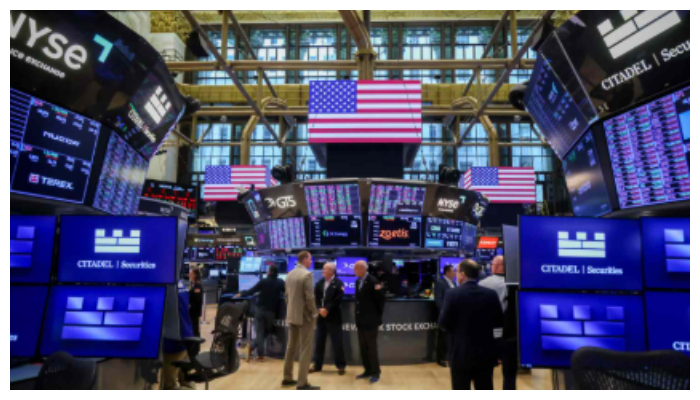The Federal Reserve cautioned on Monday that a quick hike in interest rates to manage any inflation shocks would pose a risk to the American economy, as it assessed a “higher than normal” likelihood that trading conditions in US financial markets may suddenly deteriorate.
“Further adverse surprises in inflation and interest rates, particularly if accompanied by a decline in economic activity, could negatively affect the financial system,” officials warned in the Federal Reserve’s financial stability report, which is released twice a year in May and November.
The Fed warned that job losses, higher interest rates, and lower home prices might hurt consumers’ finances, while firms could face “higher delinquencies, bankruptcies, and other forms of financial distress.”
“A sharp rise in interest rates could lead to higher volatility, stresses to market liquidity, and a large correction in prices of risky assets, potentially causing losses at a range of financial intermediaries,” the Fed reported.
That would reduce “their ability to raise capital and retain the confidence of their counterparties,” the central bank added.
Following several frantic months in US markets, the US also issued a warning regarding liquidity – the capacity to purchase or sell an asset without influencing the price. A sell-off has wiped trillions of dollars off the value of stocks and bonds, as well as shutting down new stock listings and hiking borrowing costs for households and businesses.
The Fed stated that the capacity to acquire or sell assets at broker-dealer prices had “deteriorated,” which was worse than expected given the amount of volatility. It went on to say that the decrease in liquidity could be exacerbated by brokers and high-frequency trading businesses becoming “particularly cautious” in light of the market conditions.
“Declining depth at times of rising uncertainty and volatility could result in a negative feedback loop, as lower liquidity in turn may cause prices to be more volatile,” policymakers wrote in the report.
Trading conditions in the Treasury, commodity, and equity markets have been significantly weak this year, with traders claiming difficulty doing even tiny deals without impacting prices.
The move of Federal Reserve to tighten monetary policy, as well as Russia’s invasion of Ukraine and China’s economic downturn, have all contributed to price swings in everything from Treasuries to corporate bonds and stocks.
Last week, the central bank raised interest rates by half a percentage point for the first time since 2000, and it plans to do so again at its next two policy sessions. It will also begin shrinking its $9 trillion balance sheet in June, which grew after it hoovered up bonds during the coronavirus outbreak, as part of its efforts to contain the biggest inflation in over 40 years.
The anticipation of increased interest rates has driven the 10-year Treasury yield to its highest point since 2018. This rise has prompted investors around the world to rethink the value of many of the equities they have bid up to record highs in the last year, with the S&P 500 stock index leading the way.
This year, the S&P 500 is down more than 16%, and the Nasdaq Composite is down more than 25%.
The Fed also warned about the dangers of a “prolonged” conflict between Russia and Ukraine, which has already strained commodity markets.
“Russia’s unprovoked war in Ukraine has sparked large price movements and margin calls in commodities market and highlighted a potential channel through which large financial institutions could be exposed to contagion,” Lael Brainard, the vice-chair, said in a statement alongside the report on Monday.
“The Federal Reserve is working with domestic and international regulators to better understand the exposures of commodity market participants and their linkages with the core financial system.”
For the latest Business News Follow BOL News on Google News. Read more on Latest Business News on oldsite.bolnews.com





















